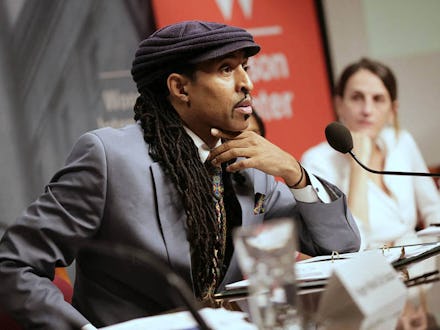Los Angeles’ 710 expansion project compromises the health of our most vulnerable communities

Transportation has a long legacy in the civil rights movement. Civil rights pioneers, like Rosa Parks and the Freedom Riders, fought for our rights on public transportation. Riding on public buses, they challenged segregation in this country.
What is often forgotten is the role transportation has played in the health and well-being of our most vulnerable communities, including low-income people and communities of color. Poor transportation planning and development without transparency and accountability can put our basic rights to clean water and air at risk. Our current addiction to fossil fuels also means these communities are both breathing in poisonous emissions from tailpipes and being impacted first and worst from climate change.
Freeway projects in America’s road-building boom in the 1960s often saw bustling black and brown communities cleared out to make way for freeways designed to cut right through town, giving us the phrase “white roads through black bedrooms.” Those days are not over. Today, transportation planners continue to force their road projects upon our most vulnerable communities. Such a story is unfolding in Los Angeles right now, where transportation agencies want to build one of the most expensive road projects in United States history. The project entails spending billions to widen the Interstate 710 freeway to allow more diesel trucks and cars — despite loud protests from local communities.
The 710 freeway is one of the most important freight highways in the nation, carrying cargo from Asia on trucks to rail yards and warehouses, where it is then distributed throughout the continent. Many of you reading this have probably bought something in the past year that traveled along this same route.
However, with the economic benefits brought by this movement of freight, there is an underbelly of toxic diesel pollution that leaves a trail of sickness and even death in its wake. The communities living in the shadows of the local ports, rail yards, and warehouses have higher rates of sickness stemming from toxic diesel pollution. In 2016, researchers estimated that 1,341 people die each year in the Los Angeles-Long Beach community because of poor air quality.
The new 710 expansion project compromises the health of communities like Long Beach, Huntington Park, Compton and Commerce. These communities along the route are primarily people of color. For more than a decade, community members and grassroots community groups have sought to ensure that if agencies spend billions of dollars in their communities, they make sure it is a project that works for the communities.
Many of these demands are centered on providing better public transportation and pedestrian routes for kids to get to school, and a focus on cleaning up the deadly diesel truck emissions that hit people’s lungs each day with zero emissions vehicles.
So far their demands have largely fallen on deaf ears by the agencies in charge of this mess, largely staff and outside consultants at the California Department of Transportation and L.A. Metro. Despite the robust involvement from a community fighting for their health and future, the California Department of Transportation and L.A. Metro has other thoughts. Instead of advancing a project that is responsive to the community, they are building support for a road widening project that will allow more dirty diesel trucks, displace hundreds of home and businesses, and provide no guarantee that the agencies will use all their authority to put local and low income folks to work building this project.
This is a civil rights issue. This is an environmental justice issue. This is a climate crisis issue.
The Los Angeles Times labeled the road project as a “1950s-era approach to transportation planning.” They are right — decision makers need to do better. It is no secret that we have a vast void of leadership in Washington, D.C., when it comes to protecting black and brown communities from pollution and fighting climate change. This means we need our local elected leaders to take action and protect all people.
L.A. Metro’s board can do the right thing and place the interests of local neighbors who deserve better over the pursuits of agency staff who only see a infrastructure project where they should see a community. The elected leaders on L.A. Metro’s board should know better. I hope they demand a project that protects people from displacement, advances a zero-emission transportation future, values the health of children, and puts our most vulnerable in charge of building their own communities.
Now, in a time when our national leaders will not lead, is not the moment for local elected leaders to waver from their core values. Now is not the time to forget the history of racism, displacement, and pollution of America’s freeways. Our leaders can do better.